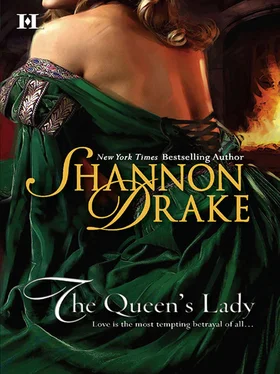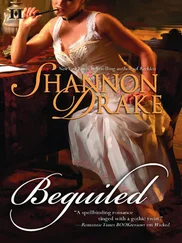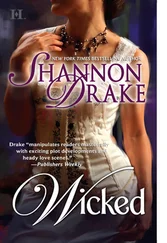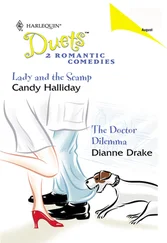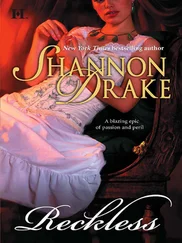“Mary, anyone who knows you is aware that you have a great heart, that you are both kind and wise. You don’t need me. You need only to believe in yourself and to be willing to understand your own people.”
“I intend to try. For I intend to be a great queen.” Mary hesitated. “Greater, even,” she said softly, “than my cousin who sits on the throne of England.”
A chill snaked along Gwenyth’s spine. Elizabeth was proving to be a very powerful monarch. She was ten years older than Mary and had been queen of England for several years now. And she was Mary’s opponent in the political arena, for when Mary Tudor had died, the French royalty had declared Mary Stewart not just Queen of Scotland and of France, but Queen of England and Ireland, as well, considering Elizabeth to be Henry’s bastard and therefore lacking the right to rule.
Politics could be a very dangerous game. Gwenyth knew Mary did not wish to oust her cousin from the throne, but she was loyal to her religion. It had become quite apparent that not only did the English not wish to have anyone other than their own Queen Bess, they wanted nothing to do with a Catholic monarch, and therein lay the seeds of potential—or perhaps inevitable—conflict.
Throughout the centuries, wars with England had torn Scotland apart. None wished to have more bloodshed to be forced upon them by the English, yet every alliance was like a dagger in the heart of some other nation. The English warily watched Scotland’s friendship with the French, and the Spanish watched them all, so they watched the Spanish in turn. Such concerns would have a crucial impact on Mary’s future marriage. She could bring an ally to their cause—and create a wellspring of enemies, as well.
As if reading Gwenyth’s thoughts, Mary said softly, “I do believe it will be best if I marry within this realm in time. And he is good looking, isn’t he?”
“Who?”
“Lord Darnley.”
“Ah, yes.”
Mary narrowed her eyes in amusement. “I gather you think someone else is also handsome? I believe I know of whom you speak.”
“You do?”
“Laird Rowan.”
Gwenyth started, and could feel her spine stiffening. “He is very rude.”
“He’s blunt, and as you’re the one teaching me about my people, you should know that such a laird, well-versed in both battle and politics, will be blunt. He is the epitome of a perfect Scottish nobleman.”
“In that case, why don’t you have your eye on Laird Rowan?”
“Now you are joking with me, are you not?”
Gwenyth frowned. “I’m not joking at all.”
Mary laughed. “Well, then, I suppose rumor is not as rife as one would imagine.”
“Mary, please, whatever are you talking about?”
“My father had thirteen recognized bastards, you know. Some of them lovely people, actually. Like my dear brother James,” she said, and Gwenyth wondered if she heard a touch of bitterness in the queen’s voice.
There had been talk at one time of having James Stewart legitimized, though it had come to nothing in the end.
Gwenyth’s frown deepened. “He isn’t one of your father’s bastards, is he?” she asked incredulously.
Mary let out a small dry laugh. “No. Though he is the son of one of my father’s bastards. His mother was the first issue of one of my father’s first dalliances.”
“Is this true—or rumor?” Gwenyth asked.
“Don’t be so concerned, my dear friend, or you will furrow terrible wrinkles into your brow. Laird Rowan’s lineage is considered quite acceptable, I assure you. However, to find one’s nephew to be attractive is quite another. Besides, he is married.”
“Oh,” Gwenyth murmured.
“Quite sad, really. He is married to Lady Catherine of Brechman.”
“The daughter of the Lord of Brechman—but…those are English lands,” Gwenyth said, realizing that she was about to hear the truth about Laird Rowan’s mysteriously tragic past.
“Yes. And how do I know all this and you do not?” Mary inquired, seemingly pleased to be able to share what she knew. “I suppose, in the last months, I have had quite a lot of communication with my brother James, and he has told me the story. It’s terribly sad. They were madly in love, and Rowan boldly declared himself to the lady’s father. They were granted permission for the union by both my brother, James, and Queen Elizabeth. She became with child immediately, but shortly before the babe was due to be born, she was in a coach accident on her father’s lands. She was badly injured and fell into a raging fever. The child did not survive, and Lady Catherine has not been of sound mind since, nor has her health ever improved. She is now quite insane and lives in Laird Rowan’s castle in the Highlands, where she is tended by a nurse and the Laird’s steward, who is both kind and loyal. She is very frail and, most fear, soon for the grave.”
Gwenyth simply stared.
Mary smiled sadly. “Close your mouth, my dear.”
“I…I…how sad.”
“Yes.” Watching her carefully, Mary said, “Don’t fall in love with him.”
“Fall in love with him? He’s a…wretched, uncouth boor!”
Mary smiled. “I see. Well, though this may be of no interest to you, I must tell you that he no longer cohabits with his wife, which would be pure cruelty, since she has the mind of a small child. And he has maintained a certain dignity in his situation.”
“Dignity?”
“I know this only from James, of course, but they say that though Laird Rowan has not become celibate, what affairs he has are…discreet and with women who cannot be hurt. And I would never want to see you hurt, my dear friend,” Mary said gravely.
“You needn’t worry,” Gwenyth assured her. “Ever. I’ve no intention of falling in love. It does nothing but make dangerous fools of any of us. And if I were to be idiot enough to fall in love, it would never be with a Highland savage such as Laird Rowan.”
Mary looked at the fire, smiling distantly. “There, you see, is the difference between us. How I long to fall in love, to know such great passion…. Ah, well. Marriage for me is a matter of contracts. Still, to once know that kind of love…”
“Mary,” Gwenyth murmured uneasily.
“Don’t worry, dear friend. When I marry again, I shall not forget what I owe to my people. Still, even a queen may dream.” She waved a hand dismissively in the air. “This has been a long, and difficult day, and there will be many more such to come.”
Aware that the queen had clearly declared that it was time to sleep, Gwenyth hastily headed for the door. “Good night, then, my queen.”
“Gwenyth…”
“I am on my way out. Now you are my queen.”
“And you remain my friend,” Mary said.
Gwenyth lowered her head, smiling, and departed, eager for her own bed in this great Scottish palace that would now be her home. As she hurried down the long hall toward her chambers, she heard voices and paused. She realized she was overhearing a conversation from one of the smaller chambers reserved for state occasions.
“There is nothing else to be done. You cannot go back on your word.” The words were spoken in a deep, masculine—and recognizable—voice. Laird Rowan Graham.
“We are asking for trouble.” She knew the second speaker’s voice equally well. James Stewart. Was the queen’s half brother really her friend? Or did he, in secret, covet the crown and believe it should have been set upon his own head?
“Perhaps, but there is no other option. We can only hope that the queen’s determination to avoid religious persecutions will prevail.”
“Then, as you have said, we must be prepared.”
“Always.”
Gwenyth was stunned when the door swung open and Laird Rowan exited, and she was caught standing, quite obviously eavesdropping, in the hall. She blinked and swallowed, as he eyed her gravely.
Читать дальше
